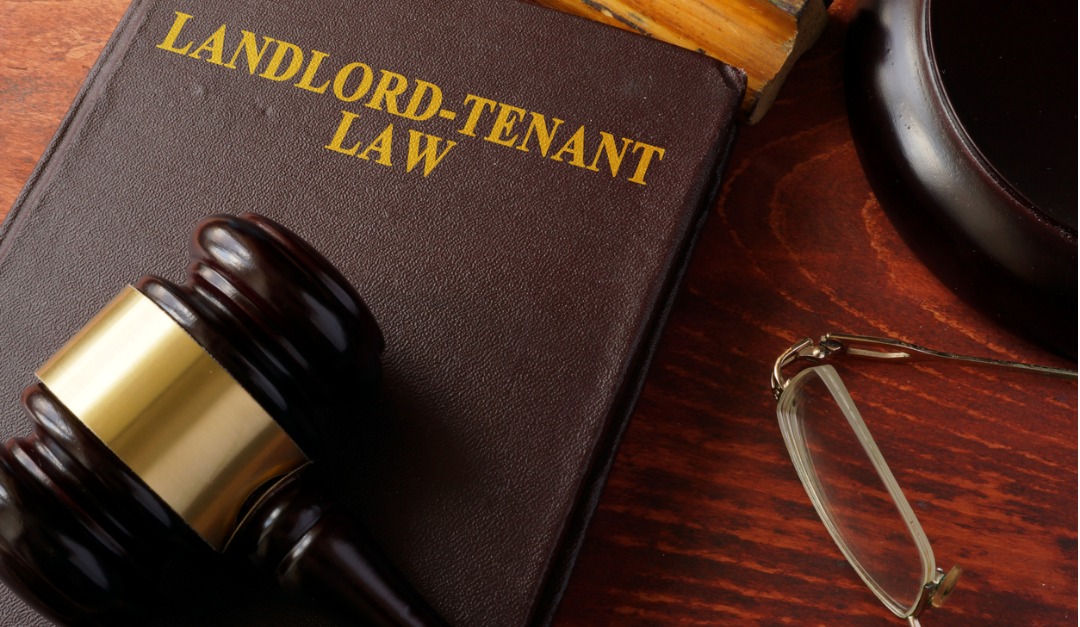With the outbreak of the coronavirus wreaking havoc across the nation and the globe, the real estate industry is scrambling to balance safety with business. This tension is probably the most acute within the rental markets where tenants are enduring economic hardships brought on by government-mandated stay-at-home orders.
Millions are out of work and can’t make rent, leaving landlords in a precarious position. Many are trying to be lenient and postponing payments, but many more simply cannot afford to be that generous. This leaves one controversial option: eviction.
Being forcibly removed from your home—especially amid a public health panic and economic hardship—is unthinkable for most people, and the exact opposite of what real estate professionals strive to do on a daily basis. From brokers and investors to appraisers and developers, the broader real estate community is all about putting people and families into homes. But this crisis is proving too massive for single entities to solve on their own.
The government, for its part, has deployed a robust stimulus package intended to boost taxpayers and, in some cases, curb evictions. The CARES Act does this by implementing a moratorium on evictions—as well as penalties and fees for nonpayment of rent—from all rental properties that, in any way, receive financial support from the federal government, including the following programs:
- Housing Choice vouchers
- Section 8 Project-Based Rental Assistance
- Low-Income Housing Tax Credits
- Mortgages secured by Fannie Mae, Freddie Mac, the Federal Housing Administration or U.S. Department of Veterans Affairs
The CARES Act protections will remain in place for 120 days starting on the date the measure was enacted, March 27, 2020. However, such properties make up less than a third of the entire U.S. rental market, according to national housing research center The Urban Institute. It estimates that about 31.5 million rental dwellings will not be covered by this program, potentially leaving all those tenants out in the cold.
“There are a large number of renters who are not protected as landlords have alternative finance options and/or the properties are owned free and clear of any mortgage encumbrance,” says Chris McDermott, a Jacksonville, Fla.-based broker and property manager for real estate investment company Jax Nurses Buy Houses.
Some states, including Florida, have issued temporary moratoriums on evictions—as well as foreclosures and writs of possession—but McDermott notes that once it expires in mid-May, those tenants who can’t make rent will likely face eviction.
“The renters can be evicted once the executive order deadline passes,” McDermott says. “Ideally, given these unprecedented times, we have to help others as human beings. No one expected this and it is easier to work together. Given that local courts will ideally be backlogged and the cost for eviction isn’t cheap, it is in the best interest of both parties to work out payment arrangements for rent.”
McDermott’s team buys properties to renovate and resell or hold in their portfolio of rental properties. A portion of their proceeds go to help pay for research and medical treatment in their local community. Lately, he said he’s been spending most of his time educating partners on the benefits and limits of the CARES Act.
Brian Davis, a landlord and co-founder at rental investment firm SparkRental.com, says that the problem with limiting eviction-protections to only those who live in federally-funded or -financed homes is that the programs—namely the securitization products—were not designed for these types of housing models.
“Government-backed mortgages were designed primarily for homeowners, not real estate investors,” says Davis. “So, many landlords have other types of loans, such as portfolio loans, private loans or commercial loans against their properties, which means the tenants aren’t protected from eviction, and the landlords aren’t protected from foreclosure.”
Another layer of the crisis to consider is the backlog in the bureaucracy. With so many local civil courts closed, there is a growing eviction bubble that’s likely to burst once the rent hearings are re-opened.
“No matter how you slice it, a lot of people are going to lose in the months to come,” Davis warns. “Tenants need to pay their rent, landlords need to pay their mortgages, lenders need to pay their investors, or else investors stop funding any loans whatsoever and possibly go under, taking large swaths of the economy with them. When one domino falls, it knocks down all the others.”
Davis’ advice is for tenants and landlords to work together and figure out payment arrangements on their own.
In New York City, the U.S. epicenter of the outbreak, brokers are addressing everything from tenants losing their jobs and rent reduction requests to investors, who’ve fled the city and don’t plant to return until the end of summer, says Louise Phillips Forbes, broker of The Louise Phillips Forbes Team with Halstead Real Estate in Manhattan.
“We are working case-by-case with each tenant and owner and adapting with a collaborating mindset and compassionate attitude,” Forbes sys. “We are all experiencing the aftershock and evolution of our New World.”
According to a National Association of REALTORS® flash survey, 24 percent of landlords and 47 percent of property managers reported being flexible with rent collections that are being slowed by COVID-19, and very few leases have been terminated.
“How we collaborate together, no matter who holds the leverage, is an opportunity to bridge all gaps and work together,” Forbes says. “It has been one of the more fulfilling times of connectivity for me because we are together cutting through egos, entitlements and legalities…All are focused on being fair (and) decent.”
 Andrew King is a contributor editor to RISMedia.
Andrew King is a contributor editor to RISMedia.











